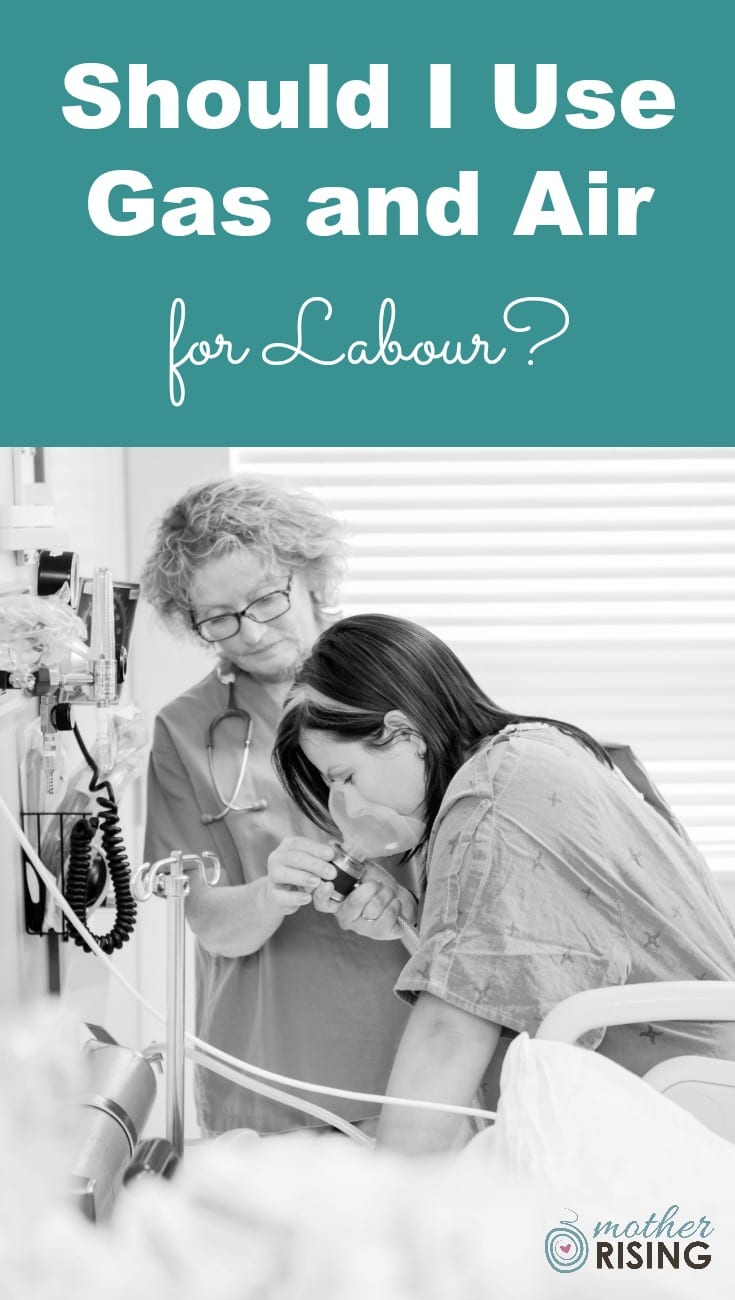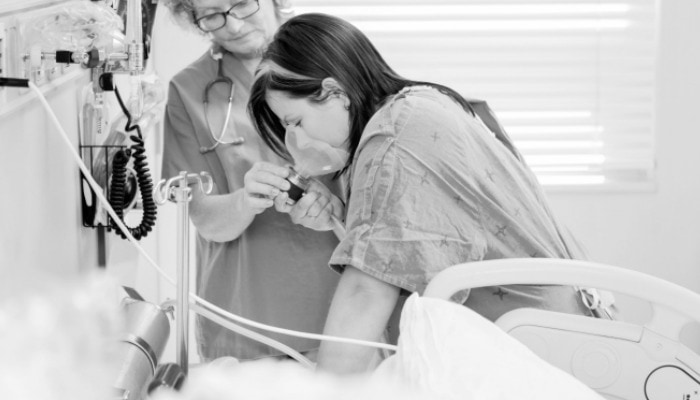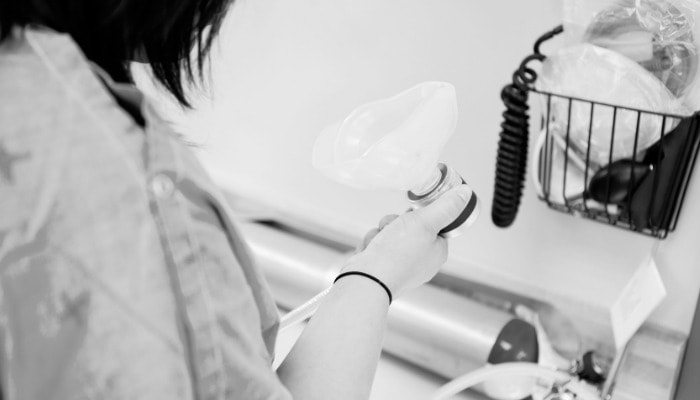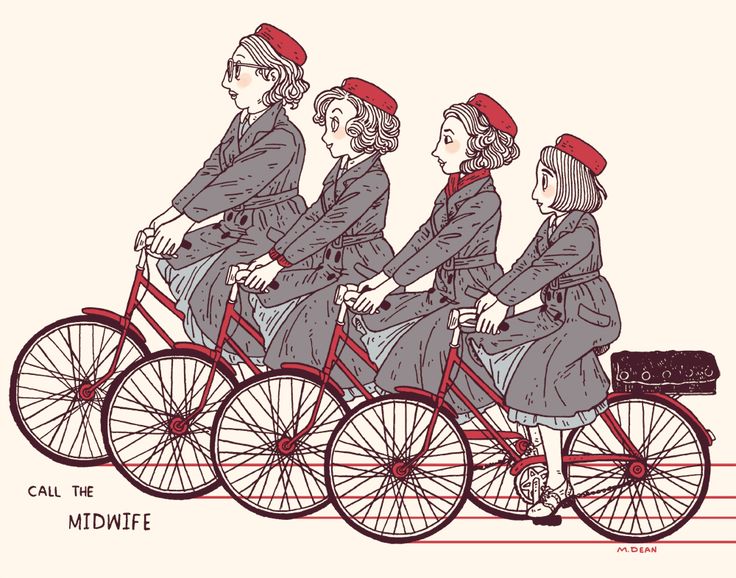In many countries, gas and air is commonly used as a pain coping strategy during childbirth. Gas and air doesn’t eliminate the pain of contractions, but eases anxiety and tension. But be warned, nitrous oxide has some serious side effects!
In this article we will learn what gas and air is, when it is used and discuss any contraindications. Let’s get started!
Should I Use Gas and Air for Labour?

What is Gas and Air?
“Gas and Air” is colorless, odorless and comprised of 50% oxygen and 50% nitrous oxide. This mixture is called Entonox and is manufactured by BOC Healthcare.
The Administration of Gas and Air
Gas and air is given through a mask or mouthpiece. During labor, before and during each contraction, a woman breaths Entonox to cope with the pain of contractions. As a contraction begins, a woman simultaneously breaths slowly and deeply into the mask to get the full effect of the medication.
How is Gas and Air Helpful?
Gas and air does not eliminate the pain of labor but helps women feel more relaxed and less uptight about the sensations of labor.
If a woman is fearful about childbirth she will begin to feel tense and uptight. The more tense and uptight she feels, the more painful her labor will be. The more painful her labor is, the more fearful she will be… and so on. This cyclical behavior is called the “fear tension pain cycle”.
Gas and air is helpful to short circuit the “fear tension pain cycle”.
Where Can Women Find It?
As previously noted, the use of gas and air is not common in the United States, but is quite popular in Europe and Canada. The United States has not followed suit, and for now much prefers the heavy use of epidurals.
In fact, I have never personally witnessed the use of gas and air, but have only read about it and seen it on tv (shout out Call the Midwife!).
(Note: If you are in the US check with your local hospital to see if gas and air is available to patients. It’s available at certain hospitals, but definitely not everywhere.)
(source)
Does Gas and Air Really Work?
I found an interesting study where the laboring women and their care providers both believed she was breathing Entonox, but only half of them actually were. Surprisingly, there were no statistically significant differences in pain with nitrous oxide compared with the administration compressed air. (source)
Pain relief in both groups were almost identical!
Having no personal experience with gas and air, it’s not fair for me to draw conclusions, but the study has me wondering if breathing deeply and slowly is just as effective as gas and air.

Who Shouldn’t Use Gas and Air?
Investigating who should and shouldn’t use gas and air led me to some VERY interesting information. It turns out that women with MTHFR should not use gas and air (nitrous oxide) ever, including while in labor (source) and here’s why.
Nitrous oxide does something funny to the body’s B12 – it totally wipes it out. And this is not an unknown phenomena!
“Nitrous oxide is known to interfere with vitamin B12 and folate metabolism. …Nitrous oxide should only be used with full precautionary consideration and close monitoring. Particular precautions should be taken in pediatric patients with underlying vitamin B12 deficiency (genetic or environmental) and conditions related to vitamin B12 deficiency.” (source)
Depleting the body of vitamin B12 isn’t good for anybody, but in a person with MTHFR this creates an even bigger problem. B12 and the MTHFR enzyme are key to the methylation process and if you are lacking just one of them, your methylation cycle does not work.
Basically gas and air would cause a women with MTHFR to have even more of a problem with the methylation process than she already does.
Lest you think that MTHFR does not affect you, I have seen statistics that around 40% of the population has a variance of this genetic mutation. If you don’t have it, someone you know does!
(By the way, I have the homozygous C677T MTHFR mutation. Woot.)
What is Methylation?
Methylation is a very important process that happens at the cellular level and takes place one billion times per second! Methylation is involved with processes of the brain, gut, detoxification and even regulates gene expression. It’s a big deal! (If reading more about methylation sounds fascinating to you, check out this article.)
Symptoms of Vitamin B12 Deficiency
According to WebMD, these are some of the symptoms of a vitamin B12 deficiency.
- Weakness, tiredness, or lightheadedness
- Heart palpitations and shortness of breath
- Pale skin
- A smooth tongue
- Constipation, diarrhea, a loss of appetite, or gas
- Nerve problems like numbness or tingling, muscle weakness, and problems walking
- Vision loss
- Mental problems like depression, memory loss, or behavioral changes
Vitamin B12 deficiency and an interruption in the methylation process can create big problems!
In my opinion, because most people do not know if they are deficient in B12 or have gene mutations like MTHFR, unless B12 and MTHFR screenings happen prior to use, it would make sense that the blanket use of nitrous oxide is contraindicated.

Does Gas and Air Affect the Baby?
Most websites say that nitrous oxide is harmless to an unborn baby. However, if it’s depleting a woman’s B12 stores (which as we now know is an even bigger problem for those with MTHFR) the same thing is happening to the unborn baby.
This study shows that anesthetics like nitrous aren’t good for a child’s growing brain.
I’m sure more research is needed, but from what I’m gathering Entonox isn’t good for a new baby’s brain.
Alternatives
Ok, Lindsey, so gas and air may not be the best choice, but what are my other options?
I’m glad you asked! As a doula and childbirth educator, I am a big fan of non-pharmacological methods of pain coping throughout labor. They work quite well!
Here are a few of my favorite methods of relieving pain during a natural childbirth.
- Hire a doula
- Take a quality childbirth class
- Breath awareness
- Labor at home as long as possible
- Ignore early labor
- Massage
- Eat and drink freely throughout labor
- Hydrotherapy
- Aromatherapy
- Change positions
- Lots of encouragement, especially during transition
- Consider alternative birthing venues such as a birth center or home
I could go on and on. But I’ll stop there for today. 😉
Leave a Comment
Please leave a comment and let me know what you think about nitrous oxide in labor. Do you have any experience with it? What other options for pain relief would you recommend as an alternative?


Sally
Thursday 2nd of December 2021
Gas & air use is very popular with NHS in UK during childbirth. I'd had N2O anesthetics as a child for tonsils & tooth removal. NHS Recommended take 400mcg folic acid during 1st pregnancy, exhaustion after birth which only got worse over the years. Suffered placental abruption at 38wks and baby died, nearly lost my own life too. 3rd pregnancy successful but exhaustion continued. Never in all that time was B12/folate level checked. 20yrs of antidepressants and metformin for non-existent PCOS, discovered through private tests that I was B12 deficient. NHS knowledge on B12 treatment is severely lacking.
HAYLEY
Monday 12th of March 2018
Thanks for this article Lindsey. I have the mthfr gene mutation (2 copies - yay for me!) and because of your article I didn't even consider having gas, which I probably would have looked into doing otherwise.
Personally it just wasn't worth the risk for me and I got through labor, transition, and birth without any pain relievers.
Alice
Monday 8th of January 2018
My mother had postnatal depression after I was born and I have been diagnosed with Asperger's Syndrome (a mild form of autism) and I wonder if both are connected to her having had gas and air whilst delivering me.
This was the 80s in Britain but it's still quite common in British hospitals I believe. I wish more research was being done on the long- term effects of this practice as the assumption that it is safe is naive at best. I have long suffered with the feeling that I cannot breathe properly...it's also interesting that low vitamin B12 levels are linked to autism symptoms.
I hope if there is a connection that the practice is banned.
If I ever have a baby I will aim for as an un-interfered birth as possible, God-willing.
Robyn
Wednesday 29th of November 2017
I've had 4 homebirths No medications at all. True natural birth. I I tooknBradly childbirth classes, which were imperative to my birthing my kids at home Thosenkidsnare now, 40, 37, 36 and 32!
Robyn
Wednesday 29th of November 2017
GREY SCALE IS VERY HARD TO READ.
Hanna
Friday 7th of April 2017
Where I live, Sweden, the use of TENS (Transcutaneous electrical nerve stimulation) is quite common. Are you familiar with It? I don't know if it available in the States. It is the bomb! Allowed me to have a natural birth twice, even when my 2nd was an emergency induction. It truly is awesome and I highly recommend it to any one who is pregnant (along with "Confident Birth" by Susanna Heli. In a word, amazing). Good luck all mammas-to-be!